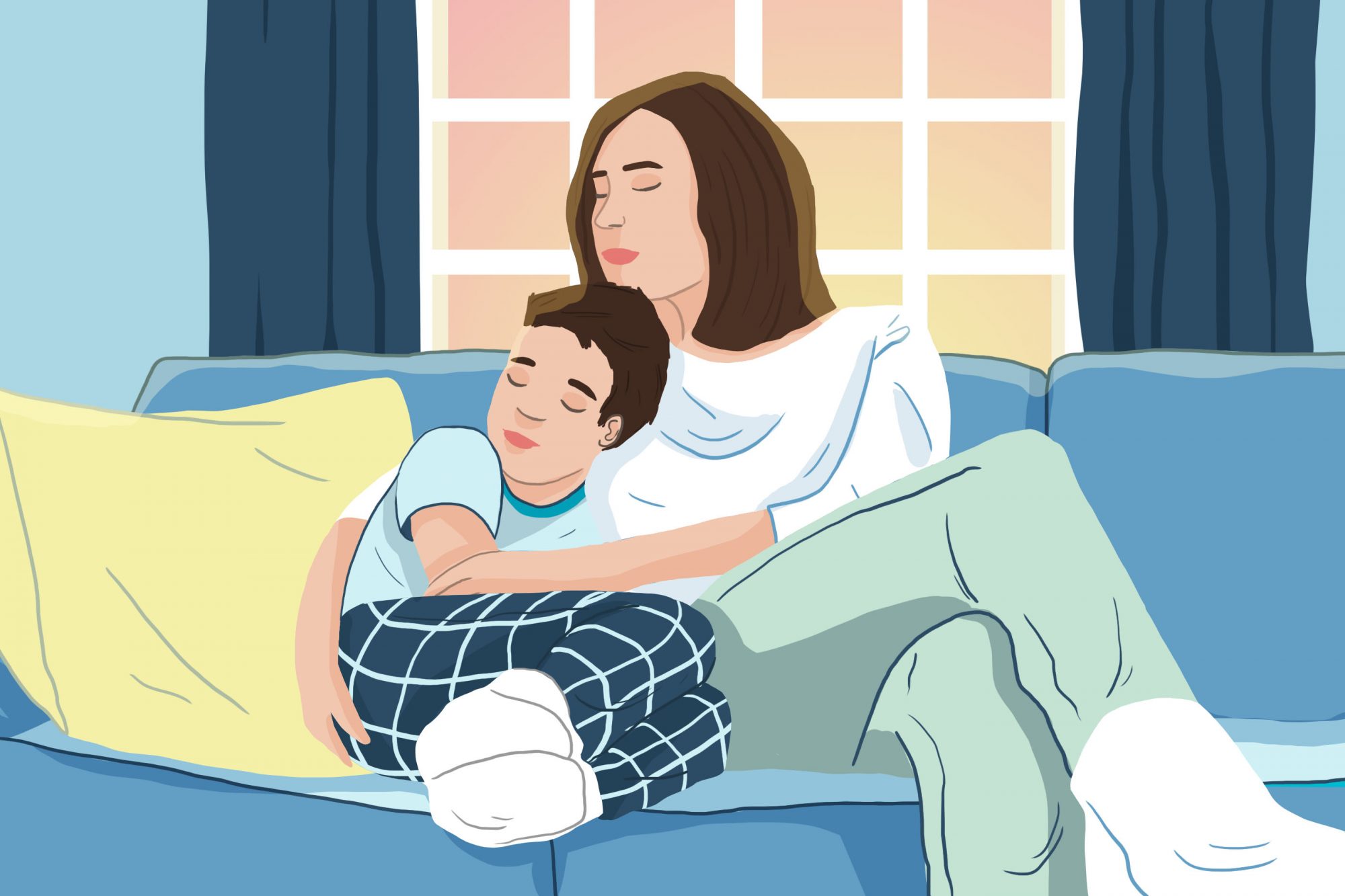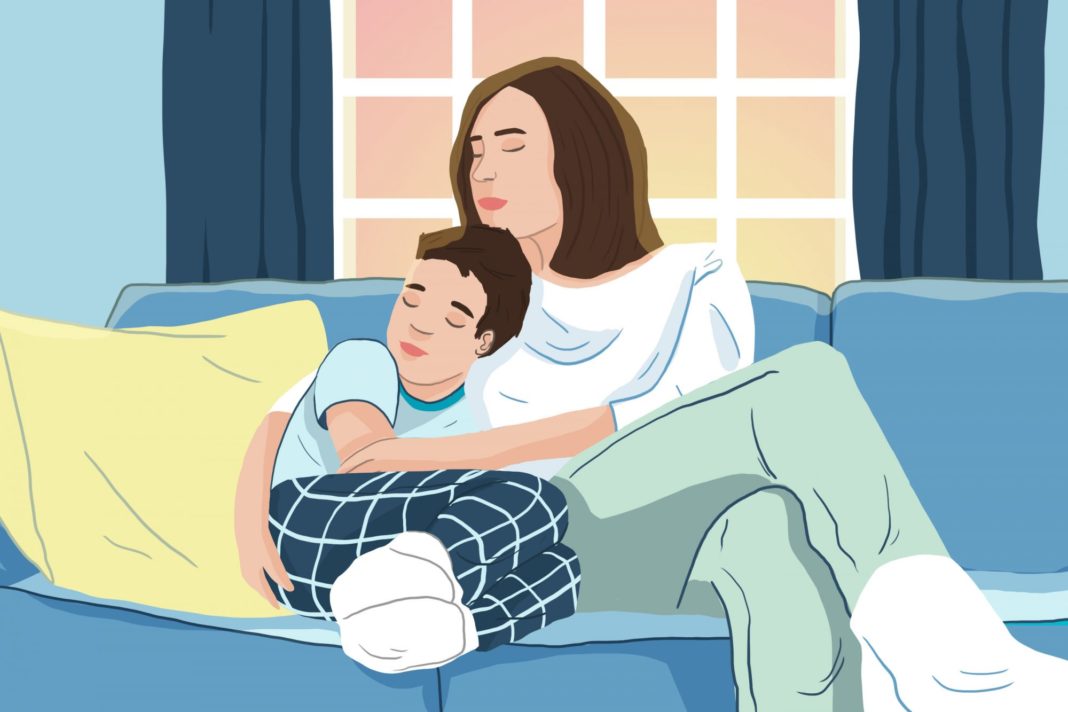
In the year before the pandemic hit, in every free moment he had, my then-9-year-old son, August, was learning basic Japanese vocabulary and cramming for his next karate belt test. In line at grocery stores and before bedtime, he practiced his kata moves over and over for us before finally flopping on his bed, excited energy still coursing through his limbs.
"What will you say when I get a black belt, Mommy?" he loved to ask. Slow to take to traditional sports or extracurricular activities, he was taking pride in his achievements and we were elated to witness him finally finding his "spark."
Cut to one year later: the community recreation center dojo my son attended is gone; his karate instructor has retired. His gi (uniform) hangs in the closet, likely too small now. The martial arts-themed cookie cutters I bought to celebrate his next belt achievement are unopened from their original box when I purchased them in March 2020: the month when everything would change for everyone, everywhere.
Parents have suffered significant hardship during the COVID-19 pandemic, grieving the loss of family members and friends, jobs, and a general sense of normalcy. My son's loss of karate—not the setbacks to my own career—most often brought me to tears. Of course, it hasn't been easy on our kids either.
"The overall theme for the clients that I've seen is grieving the loss of connection," says Shanaz Ikonne, LPC, NCC, a licensed professional counselor and registered play therapist in Austin, Texas, who focuses on children and families of color. "Even though children are resilient, they are social beings, and so they long for that interaction."
And grief and loss aren't the same for everyone. "For the BIPOC community during COVID, there's also stressors related to racial tension that can also be a factor in internalizing more isolation or feelings of loss or grief," says Ikonne.
With the arrival of vaccines comes hope for families to rebuild their routines and regain some of that longed-for connection and interaction in the upcoming months. But after more than a year of dealing with upended lives, many of us are probably wondering, how? Experts offer some ways to support our kids as they reemerge after more than a year of pandemic life.
Don’t Push
Some children may be ready to jump back into their favorite sport, but many may not be as eager to dive into the activities they loved pre-COVID. Though August initially missed karate and asked about it often at the beginning of the pandemic, at this point, he has stopped mentioning it at all.
"It's super common, and it's normal for children to pivot toward new interests," Ikonne says, particularly following a year or more away from their old former activities. During that time, kids have likely been exposed to new activities through social media or television and may be ready to shift gears.
Rather than putting too much emphasis on old activities if your child isn't feeling up to them, parents can encourage their kids to try out a couple of new options, advises Ikonne. Taking trial classes is a great way to boost their confidence for a small investment of time and money. Keep an open dialogue about what's working best for your child, acknowledging that it can be hard to try new things, but it can also be very rewarding.
And remember, there's nothing wrong with taking it slow. "There is a feeling of, we're ready to be done and once this is over, we'll be better. Give yourself permission to realize we can pace ourselves," says Lori Baudino, Psy.D., BC-DMT, a child psychologist based in Los Angeles. For example, you don't have to dive into an eight-hour playdate if you're not ready for it. "It's being aware of making space to come back to the home and come back to the quiet time, to have that balance as we re-enter," adds Dr. Baudino.
Create New Rituals
Children also thrive with consistency and predictability. That's part of the reason many of us (parents included) suffered during the pandemic. Experts say to look for ways to create routines or rituals in your daily life, especially as things start to reopen.
That can be a family game night or picnic, or it can be as simple as a regular morning cuddle on the couch before school. Maybe it's a weekly family bike ride to kickstart a return to physical activity.
"Rituals give [kids] a bridge to go out into the world, into a place that has been told to them that there's been a threat, but now we're telling them that it's safe," says Dr. Baudino. "But they have to work out that trust. It helps for kids to have some things they always know are the same, things that they can have control over."
Recognize Signs of Struggle
Pay attention to signs your kid might be having a hard time dealing with a shift back to normalcy. For younger children, Ikonne says symptoms like reverting back to thumb-sucking or bedwetting that persist longer than two weeks might indicate a need for some therapy. With elementary-age children, parents might see increased irritability, nightmares, avoidance of school, withdrawing from friendships, or their child might have more frequent physical complaints, such as increased headaches or stomach aches.
Oftentimes, kids who struggled before the pandemic are likely to have more pronounced symptoms of anxiety during and post-pandemic, according to the therapists. But don't be concerned if your child doesn't show any outward symptoms of anxiety or loss. Just like parents, some of them will take the changes in stride—particularly if that's what they see modeled for them.
"As parents, as we get back to this new norm, modeling the regulation for our children is key," says Ikonne. "Our children will follow our reactions. If you're caught up in the news all day or you're on your phone all day or talking about COVID a lot, that can create some dysregulation. If you're calm and collected and sharing facts in an age-appropriate way, reassuring them that things are going to be better, that'll create a positive outlook for the child."
Have Open Conversations
It can be healthy to acknowledge what was lost during the pandemic, and to talk through it with your kids. And always validate their feelings. Andrea Purrenhage, a mom of two in Mount Pleasant, Michigan, whose son missed out in a starring role in a local production of James and the Giant Peach, recalls him asking her, "Mom, tell me the truth: nothing is going to be normal again, is it?"
They worked through their shared sense of fear of the unknown together and he eventually came to feel grateful for the experience of being in theater, as well as the opportunity to create new family memories during COVID.
Focus on the Positives
I try not to write off the entire year as a loss. My younger son, whose entire kindergarten year took place virtually, learned the ins and outs of Zoom calls, how to submit his homework digitally, how to raise his hand and wait for the teacher to call on him out of 20-some Brady Bunch-style boxes each containing a wiggly 5-year-old.
"I would love that to be celebrated more—the patience, the resilience, all these skills they were learning, but they really got to use them during this time," says Dr. Baudino. "There's a sort of huge awareness that was given to all of us, and I don't want that to be lost on anyone."
In my case, we may not return to karate, but as my kids and I begin to think through future options, I'm grateful that we will approach our choices with greater intention and a sense of what is really important. And I know that eventually the spark will come back in its own way, for all of us.

































